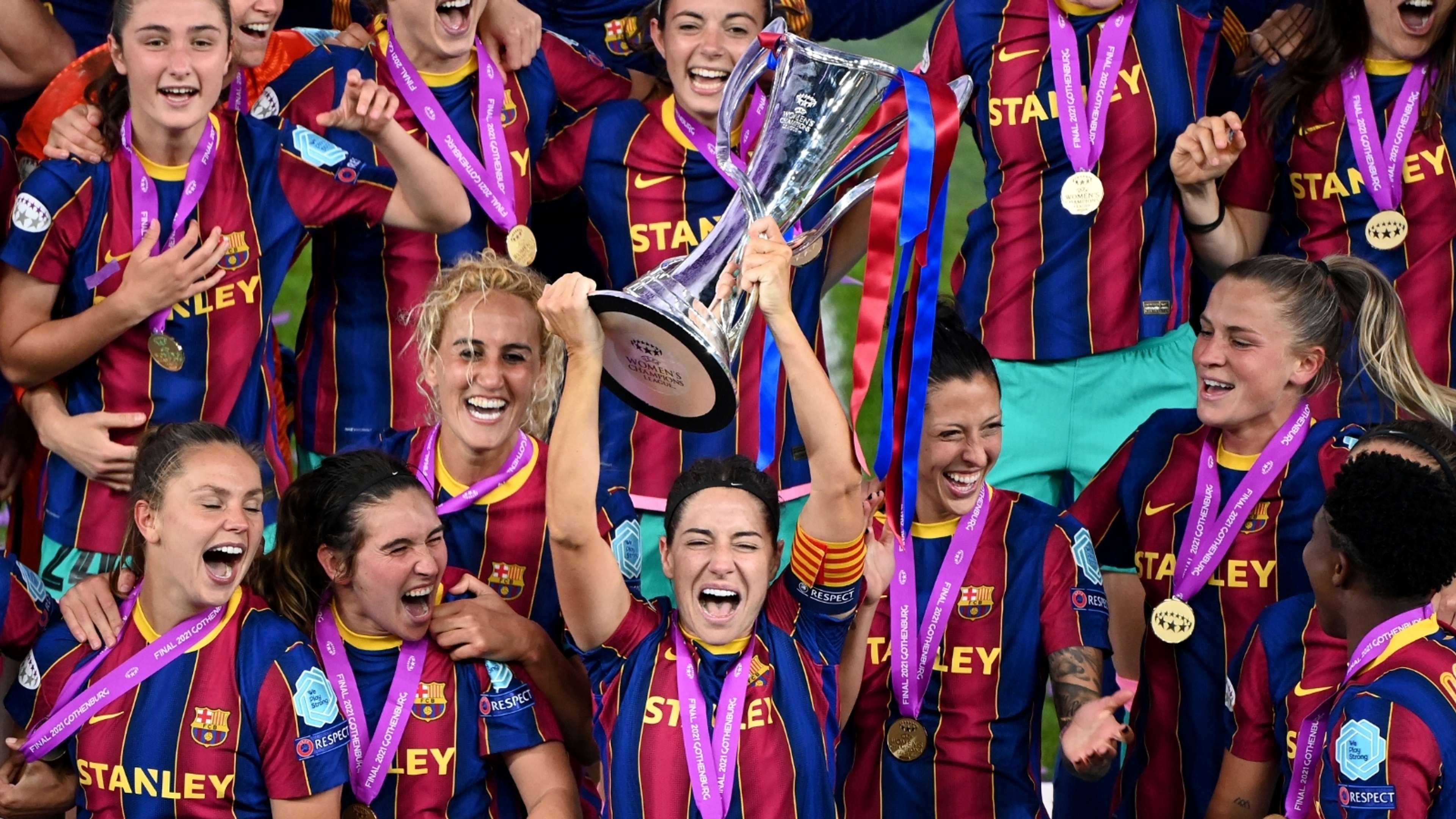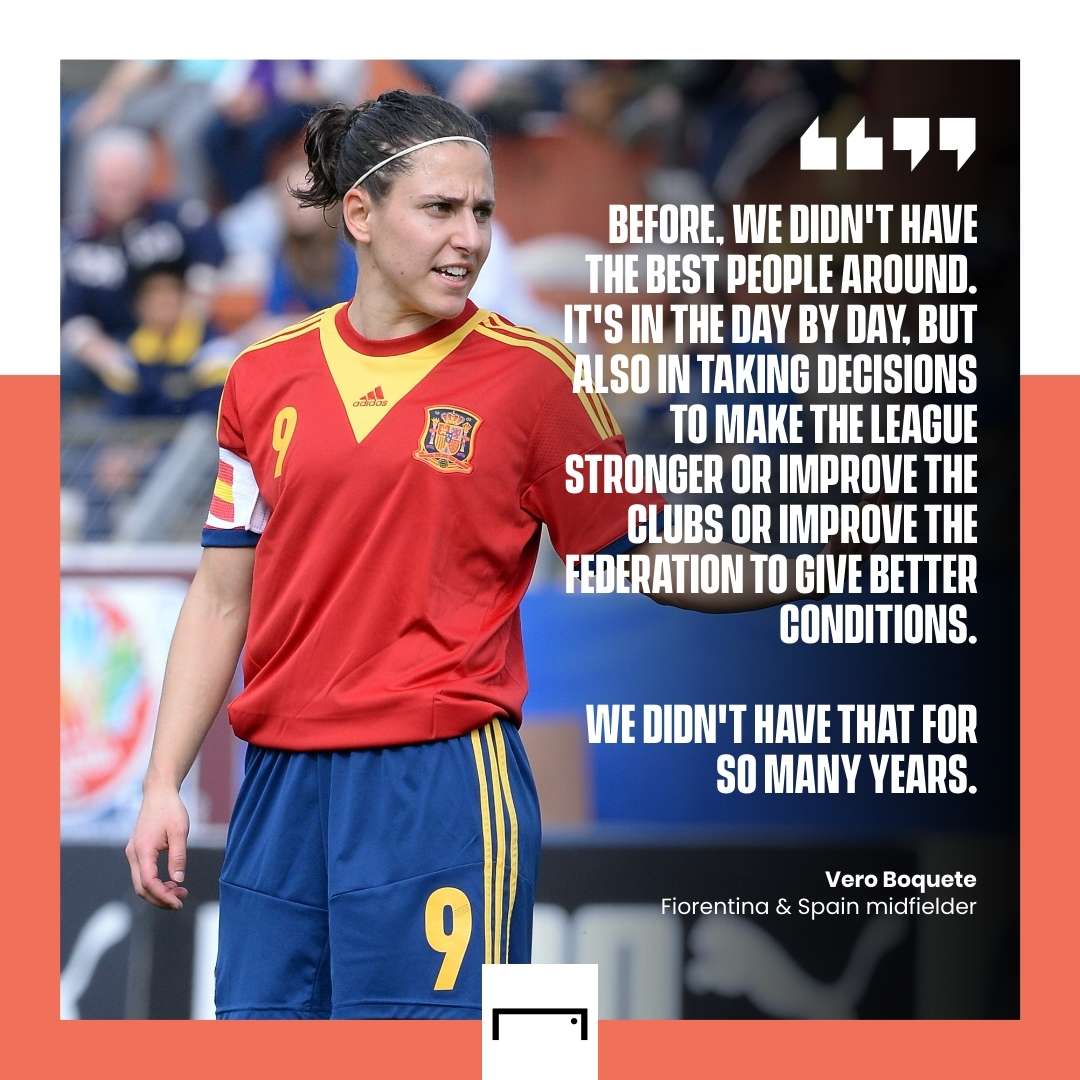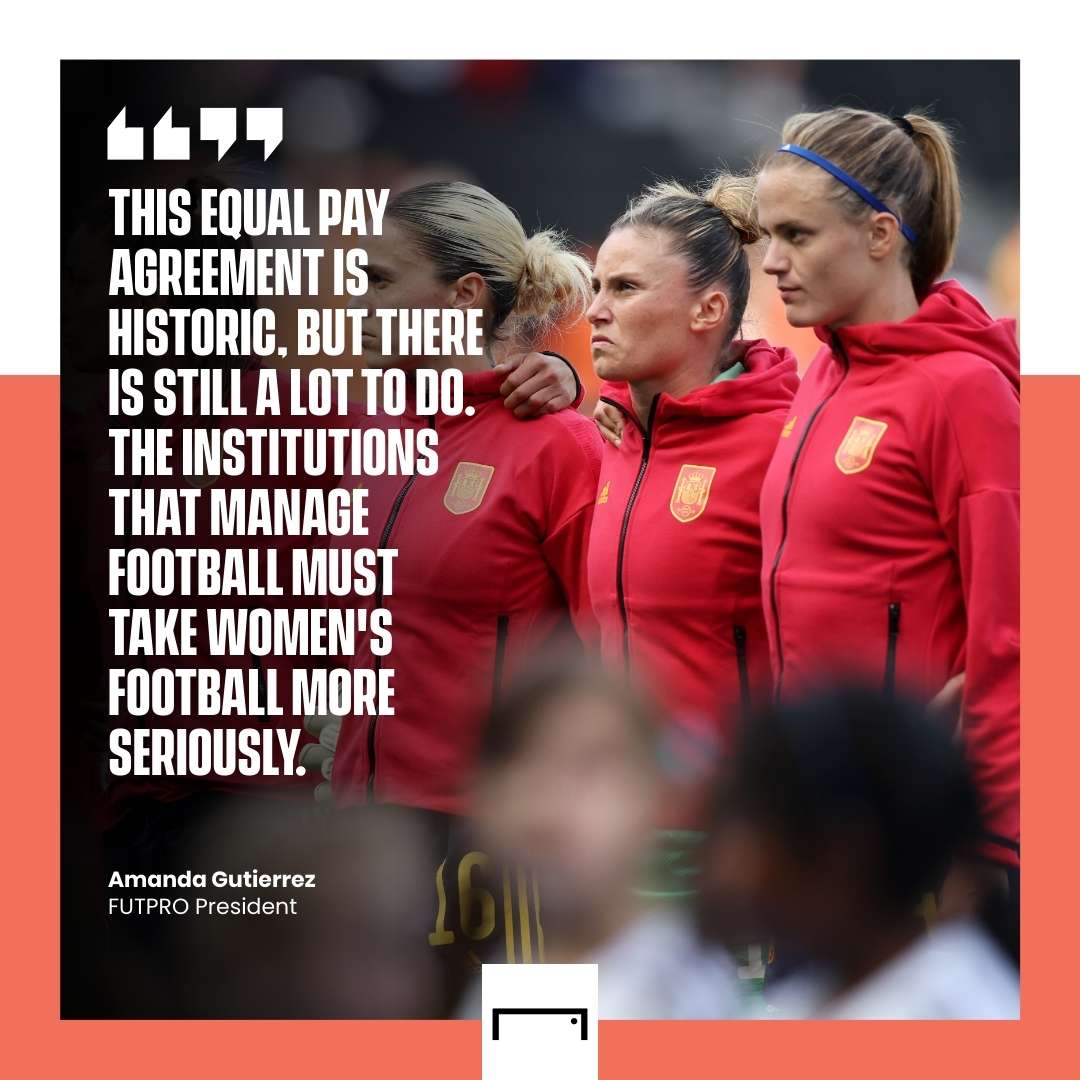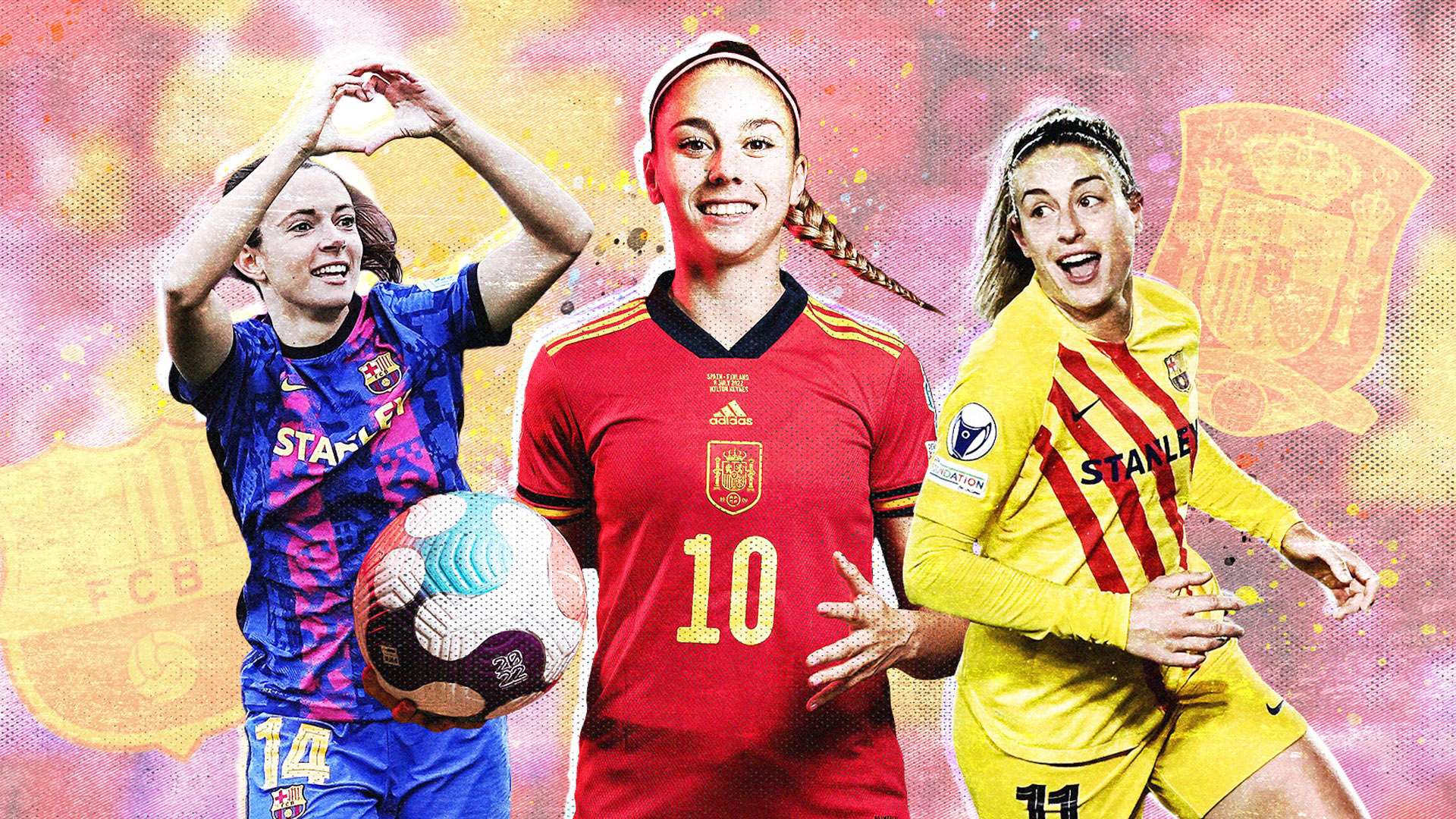When Spain arrived in Canada for their first ever Women’s World Cup in 2015, they did so just two days before their first game and without having played a match for two months.
With preparation like that, they stood no chance, and inevitably fell at the first hurdle, eliminated in the first round after finishing bottom of their group.
Fast forward seven years and they are the bookmakers’ favourite for the Women’s Euros, a Spanish club, Barcelona, has won the Champions League and a Spanish player, Alexia Putellas, the Ballon d’Or.
The comparison between now and then is like night and day, but if it wasn’t for what those in 2015 did, that progress is unlikely to have occurred.
Vero Boquete is one of the best players Spain has ever produced. She was one of the players many were excited to watch at that Canadian World Cup.
“We believe that we have reached the end of an era and change is required,” a statement from the players read.
Later, allegations of bigotry, sexism and homophobia would be made against head coach Ignacio Quereda, who left his role in 2015 after 27 years in charge.
This period would be one of the most important in this team’s evolution.
“After that, everything changed,” Boquete tells GOAL. “A new coach, a new sporting director, better conditions in the flights and preparation, better knowledge. It was a little of everything, but it was a big change.
“Before, we didn't have the best people around. When you don't have the best people around, it's in the day-by-day, but also it is in taking decisions to make the league stronger or to improve the clubs or to improve the federation to give better conditions. We didn't have that for so many years.”
“In the Spanish national team training ground, we had a different pitch and it just started from that,” adds Vicky Losada, captain of Barcelona’s treble-winning team in 2020-21.
“For people, it can be a silly thing, but every day you want the best conditions. We started training on the best pitch in the training ground at reasonable times, not late.
“In terms of travelling, it was better. For me, it was more about the preparations. We had more people in the staff, qualified people and then we started preparing well with big games against big national teams.
“In the end, you have to prepare against the best teams if you want to be one of the best. It all came also with the improvement of the teams in general. I think that environment started to be professional.”
That growth of the Spanish league and its clubs is another incredibly important factor both Boquete and Losada pick out when reflecting on the progress.
 Getty
GettyThree years and six trophies later, the women turned professional. They joined the men’s team for pre-season tours. They had their own lucrative deal for a shirt sponsor.
They signed players to fit the club’s philosophy and built up the women’s academy, both of which would pave the way for the incredible success they are enjoying today.
With such a large chunk of players from Barca playing for Spain, it directly benefited the national team. It also set a new standard for other clubs in the league to follow, while no doubt encouraging Real Madrid to enter the women’s game.
“I still think that the Spanish league needs to keep growing, but it's true that teams like Real Madrid, Real Sociedad, teams that really have a name in the men's game, it's important that they invest in women's football,” says Losada, who is working for the BBC as a pundit during the Euros.
“It was very important to have Real Madrid. It made a massive impact when you have El Clasico. That's a massive game in terms of TV, promotion, and also I think that [the club] is going to be professional and is going to let the players develop as professionals, which is what Spain needs to be a big team.”
Alongside all of this has been the expansion and growth of the youth national teams, which are some of the best in the women’s game today.
Spain has won eight major tournaments at youth level since 2010, with its latest coming in July when the women’s under-19s won the Euros, making it three titles from the last four editions.
The structure in Spain has been strong for a long time, meaning talents are spotted and brought into the national team set-up early, but it has improved a lot, too.
More teams have been added, more camps take place and the federation “already knows all the players that are coming [through]”, Boquete says.
As a traditional footballing nation – and one of the very best, too – there has always been a lot of talent in Spain. Now, it is just being given a better environment to develop.
 Getty/GOAL
Getty/GOAL“I think [the sub-federations] have improved so much and from really early ages are giving [players] really good development,” Losada explains.
“I think that's massive. Then when they are 15, they already come with bases that are even better than the one I had when I was 25!
“You start with girls that understand the game and it's about giving them the perfect conditions to develop physically, mentally, and prepare them to basically [have] winning mentalities.”
“It is just giving it some time because the players, we were always good in U17s, U19s, it was just a matter of time to be able to do it at the highest level,” Boquete adds.
“Those players are coming and some of them are now in the national team. We have a good mix with young and experienced players.”
The final piece of this puzzle is the changes in society that have come, to allow more of this progress to take place and more of the obstacles Spanish women’s football has faced to fall.
In 2019, 60,739 fans flocked to the Wanda Metropolitano to watch Atletico Madrid play Barcelona. Post-pandemic, it’s been Barca smashing those big records with sell-out crowds at Camp Nou.
It’s not all rosy, though. After all, this isn’t happening every week at every game. There are still examples of teams not being treated as they should, too, such as Rayo Vallecano, who made headlines for all of the wrong reasons throughout the 2021-22 season due to a serious lack of resources and support.
When GOAL speaks to Amanda Gutierrez, the president of FUTPRO, the women’s players’ association in Spain, the conversation is geared more towards what more needs to be done, rather than how triumphant the recent equal pay deal for the national teams is, one that she helped to secure.
“Little has changed,” Gutierrez admits, speaking about attitudes in the country. “This agreement is historic, but there is still a lot to do and the institutions that manage football must take women's football more seriously. There is a lot of work left.
 Getty/GOAL
Getty/GOAL“It is a great achievement because it lays the foundation for the future. From here, we can only improve the conditions, and it is a demonstration that the united players have strength and will not hesitate to fight for their rights.
“We are now negotiating the collective agreement, which regulates the working conditions of the players in the new women’s league. We currently have an annual salary of €16,000 (£13,500/$16,3000) and if we want to be among the best leagues, we cannot have such precarious conditions.”
The latter is a reminder of the stage that Spain is still at in its development.
For many, they have been the outstanding favourite for this summer’s Euros, a prediction largely based on the rise of the league’s quality, Barcelona's success and the emergence of Putellas – who will sadly miss the tournament after rupturing her ACL on the eve of the first game – as the best player on the planet.
It's never just been about Putellas, though – Aitana Bonmati, Patri Guijarro, Mapi Leon and many more of her Barca team-mates are among the world's brightest stars.
They could well win the Euros and the progress has been wonderful, but they are not the front-runner many make them out to be.
“We have really good talented players, good talent, and I think it wasn't fair, for many years, not having the right conditions to give your best,” Losada says. “I think we still need time, if you compare Spain with Sweden, the Nordic teams, or maybe England.
“I think we're doing things well, but the other teams have been doing them for longer. I think it's about time. Now, the young players are really good so I think the future is going to be brilliant.”
“Even if Spain doesn't win the Euros,” Boquete concludes, “we are already on the right path.”




